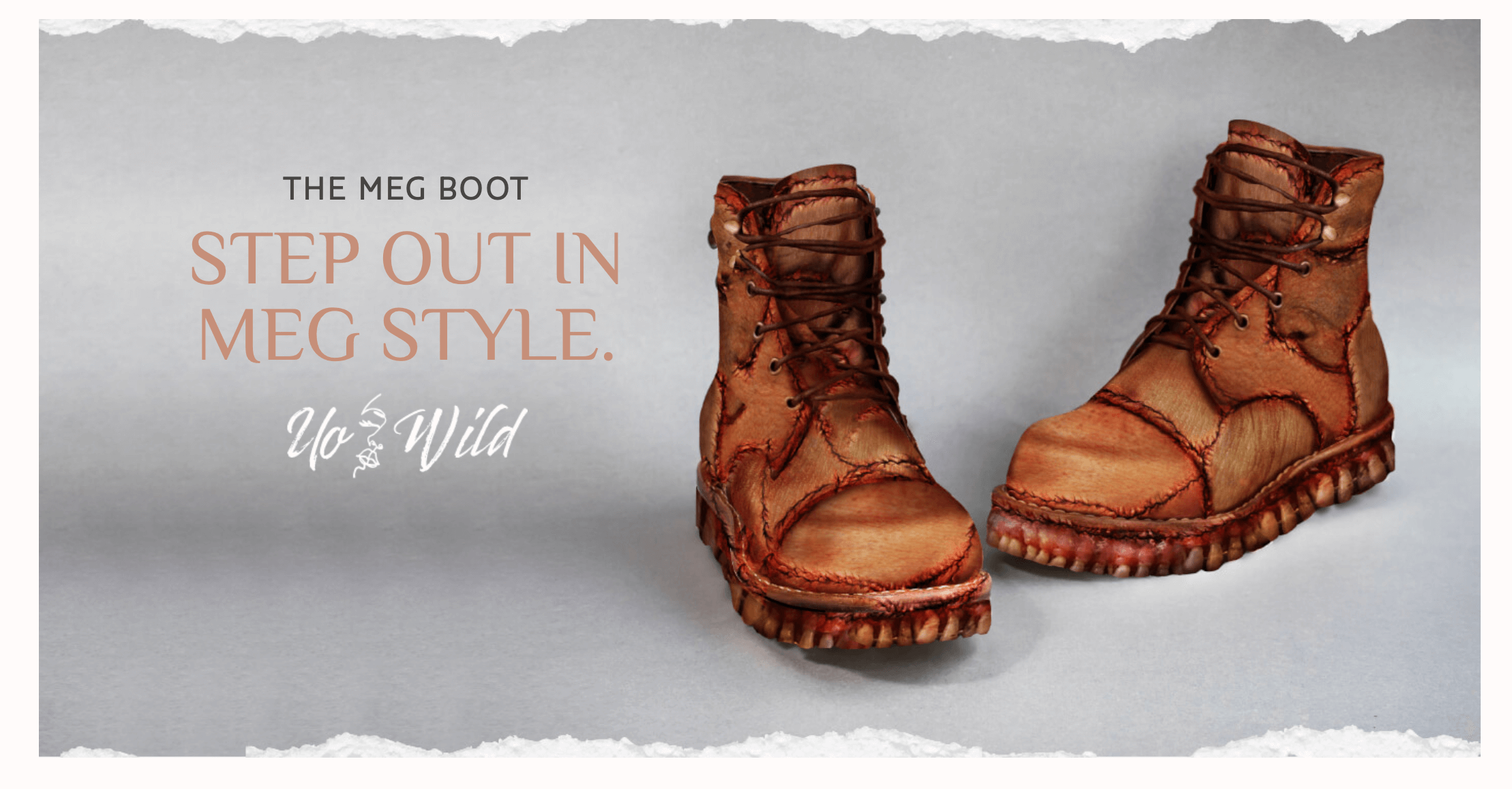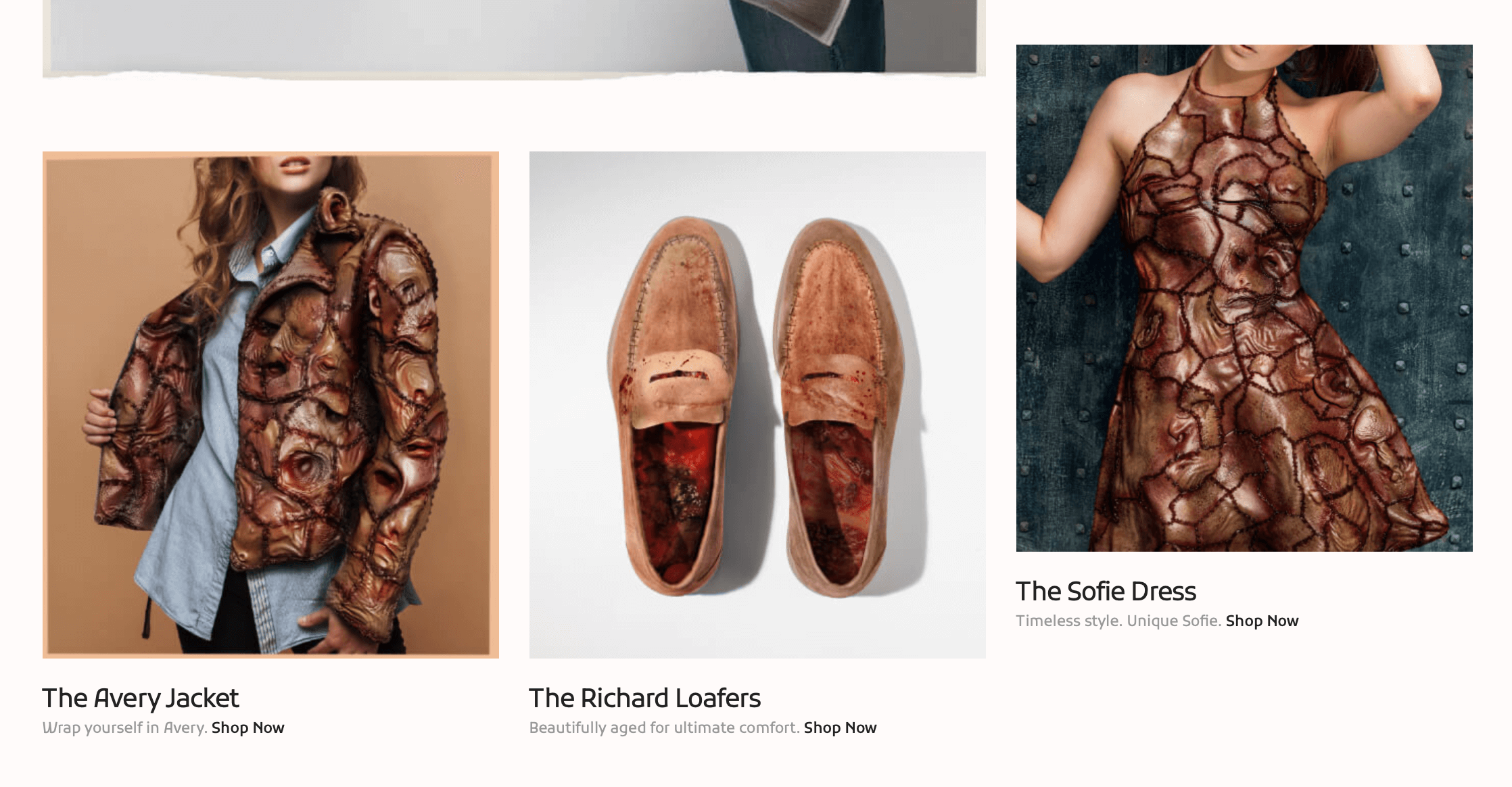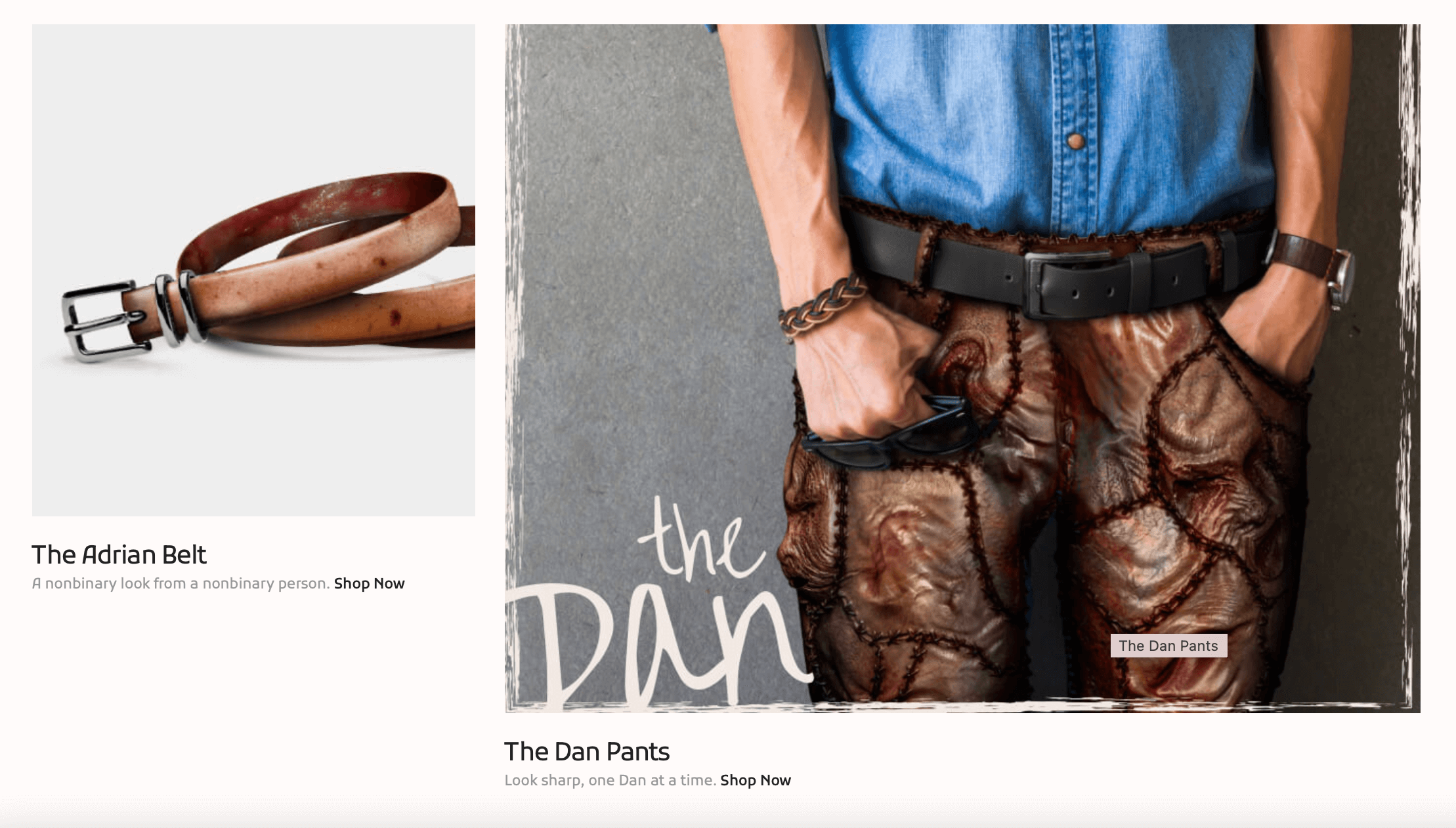Human skin is ‘in’: PETA launches grisly online shop with items made of ‘genuine human leather’
The animal welfare advocacy group released the campaign aimed at fashion retailers that continue to sell products using animal-derived materials.
The People for the Ethical Treatment of Animals (PETA) launched its chilling guerrilla campaign with a satirical website Urban Outraged, which features items like jackets, boots, skirts and bags made of the “finest leather”—human skin and body parts.
The website was built to appear like a real online shopping experience, with a goal to make people question why it’s deemed acceptable “to use the skin of any living, feeling being for fashion.”
Emblazoned on the site is the campaign tagline, “Style that demands a second look,” along with everyday fashion items that reveal human faces on jackets, human teeth on shoes, and human blood oozing from bags—reminiscent of how infamous serial killer Ed Gein made grotesque display items from his victims’ body parts.
On the site, each item for “sale” is named after the individual who was “killed” for it. The items also have gruesome and macabre descriptions and are “reviewed” by customers.
For example, “The Avery Jacket” made of human faces has a description that reads: “Avery’s leather is natural and one-of-a-kind—after all, there was only one Avery… As Avery was only 22 when she was taken away from her friends and family, the jacket should age beautifully. She came pre-tanned and was then flayed while still alive so any signs of stress on the skin are incidental and should be taken as signs of individuality.”

There is also “The Meg Boot” with soles made of “human teeth.” Each boot, the description reads, features its own special touches, “depending on which part of Meg was used… With every kick and scream came lots of pounding with hammers to ensure that the leather stays soft and pliable. We managed to clean off most of the blood, but the occasional drop can be expected as a result of the handmade process.”
A customer posted a “review” of the product, which read: “I’m not really a boot person, but I’m glad Meg was, because these are the best boots I’ve ever worn.”

The site also has an “Afterlife Collection,” which will “turn your loved one’s skin into a handmade item for you to cherish.” It also provides a step-by-step process on how the skin of the deceased will be used. There is also a “Skin product chart,” which shows which part of the body will be used—like torso skin for a purse, thigh skin for a photo album and calves skin for a wallet.
All of these are part of PETA’s latest campaign to get fashion company Urban Outfitters to realize that “we are all sentient beings with emotions, intelligence, and desire to live” and to persuade the company and other two of its brands—Anthropologie and Free People—to "stop selling skin anyone was born in."
Urban Outraged also has a shareable “shopping” experience, where visitors can share on social media the items and send “gift cards” to their friends to raise awareness on the organization’s cause.
“A cow’s skin belongs to her, and she feels fear and pain in a slaughterhouse every bit as much as you or I would,” said PETA executive vice president Tracy Reiman in a statement.
“PETA’s Urban Outraged challenges shoppers to see the individual behind every bit of animal skin on store racks and shelves,” she said.

The animal welfare advocacy group is known for its in-your-face campaigns that get people talking. However, some of them have been plagued with controversy.
In 2009, PETA was in hot water after the catholic church condemned its campaign with model and animal rights activist Joanna Krupa, who posed nude with only a crucifix covering parts of her body.
The group was also slammed by feminists for comparing women to meat in several of its campaign to promote veganism.
PETA also drew flak after it released a controversial “Save the Whales” billboard in 2009, which was eventually taken down, that reportedly targeted fat women.
The organization has previously spoken out about why it uses controversial tactics to send its message across, an approach that PETA claims has been successful.
“It is sometimes necessary to shake people up in order to initiate discussion, debate, questioning of the status quo, and of course, action,” PETA said.
“Thus, we try to make our actions colorful and controversial, thereby grabbing headlines around the world and spreading the message of kindness to animals to thousands—sometimes millions—of people.”


